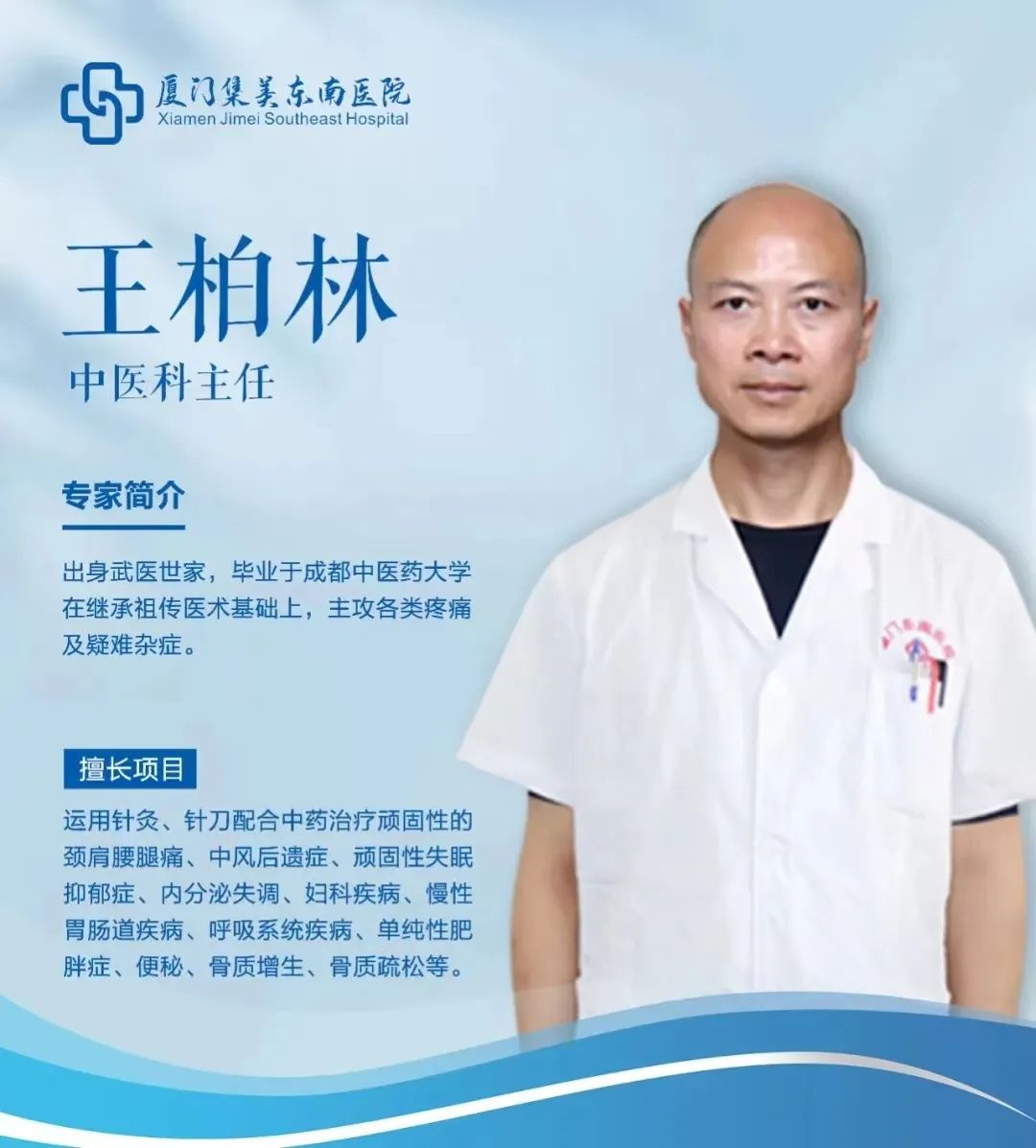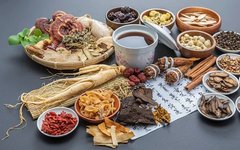Due to differences in geography, seasons, and constitution, foods are selected based on different dietary therapy principles. Below, we will explore some essential knowledge of dietary therapy that everyone should know.
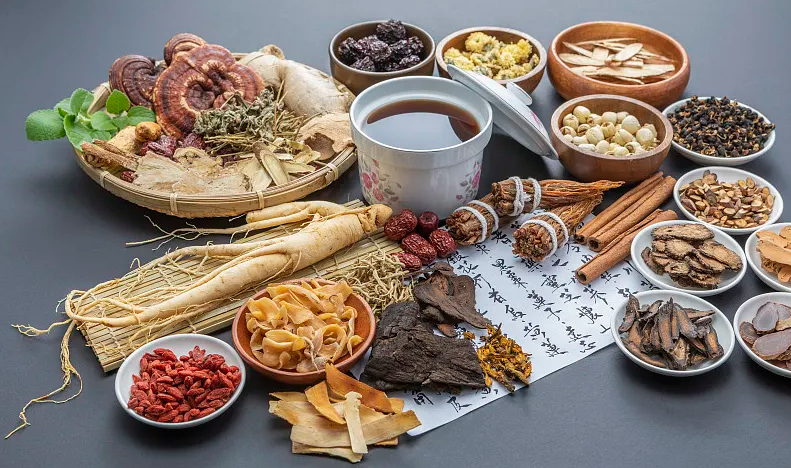
Image Source: Visual China
1. Dietary Therapy Based on the Four Natures
Cool and Cold Foods: Foods that can eliminate heat symptoms and pathogenic heat, where cool and cold are merely degrees of difference.
Effects: Clear heat, relieve summer heat;
Indications: Heat symptoms, pathogenic heat, summer heat, yin deficiency, excess fire;
Examples: Soybeans, mung beans, bitter melon, loofah, white radish, water spinach, duck, apples, pineapples, white sugar, fish, etc.;
The well-known bitter melon has effects such as clearing heat and relieving summer heat, treating heat-related injuries, calming the mind, clearing fire, reducing liver heat and eye redness, swelling, congestion, and eye discharge;
Treatment for acute and chronic mouth ulcers: Fresh bitter melon juice held in the mouth for 5-10 minutes, 2-3 times a day. It is also recommended as a first-choice ingredient for diabetics.
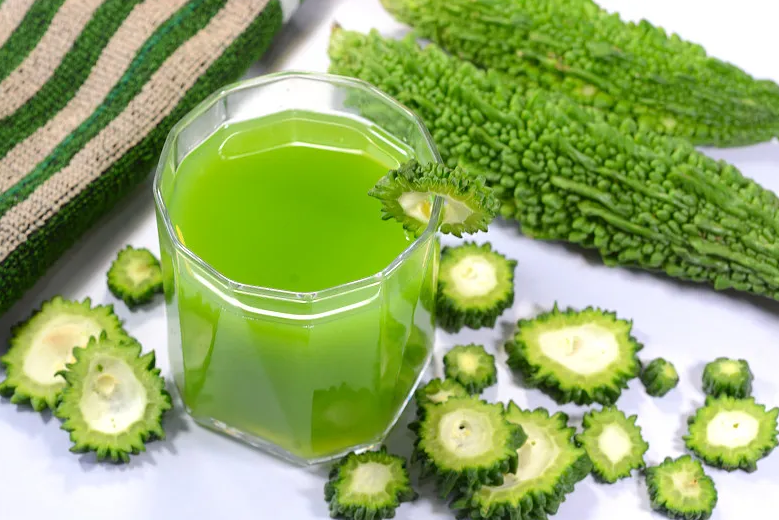
Image Source: Visual China
Warm and Hot Foods: Foods that can eliminate cold symptoms and pathogenic cold, where warm and hot are merely degrees of difference.
Effects: Dispelling cold, tonifying deficiency;
Indications: Cold symptoms, pathogenic cold, deficiency symptoms;
Examples: Sweet potatoes, black beans, glutinous rice, wheat, pumpkin, carrots, scallions, ginger, garlic, hawthorn, lychee, brown sugar, peanuts, beef, lamb, goose, shrimp, etc.;
Commonly kept ginger at home has the effect of dispersing wind and cold;
For warming the middle and stopping pain, treating cold symptoms in the middle jiao, and vomiting due to cold in the spleen and stomach: 5-10g of fresh ginger boiled in water and consumed frequently;
For acute sprains: Fresh ginger crushed and applied can invigorate blood and resolve stasis.
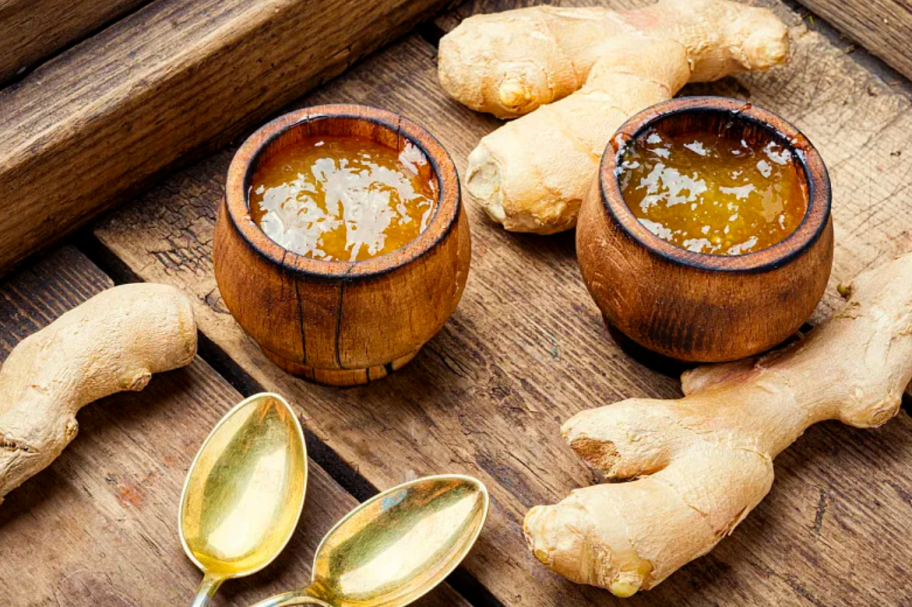
Image Source: Visual China
Neutral Foods: Foods that do not have obvious cold, hot, warm, or cool properties.
Effects: Tonify deficiency, strengthen the spleen;
Indications: Deficiency symptoms, spleen deficiency (frequent abdominal distension, poor appetite, loose stools, abdominal distension after meals, drowsiness, desire to defecate);
Examples: Rice, pork, chicken, rabbit meat, water, potatoes, etc.;
Potatoes are neutral, sweet in taste, can strengthen the spleen and benefit the stomach, and provide a feeling of fullness, making them suitable for those on a diet to replace staple foods.
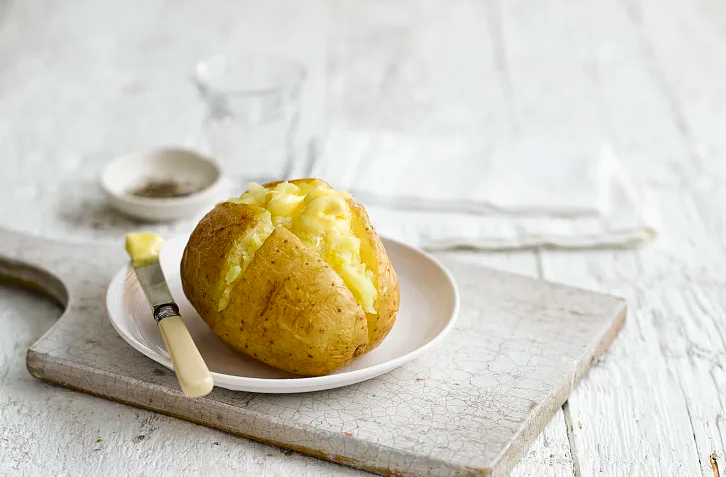
Image Source: Visual China
2. Dietary Therapy Based on the Five Flavors
Pungent Flavor: Foods that promote qi circulation, invigorate blood, and disperse external pathogens.
Indications: Qi stagnation, blood stasis, exterior pathogenic invasion;
Examples: Qi-moving: pepper, coriander, scallions, tangerines, radishes, etc.; blood-invigorating: hawthorn, black fungus, scallions, ginger, eggplant, etc.; dispersing wind-heat: houttuynia cordata, white radish, etc.; dispersing wind-cold: scallions, ginger, garlic, coriander, etc.;
Treatment for dispersing wind-cold and wind-cold common cold: 15g scallions + 5g fresh ginger + appropriate amount of brown sugar boiled in water.
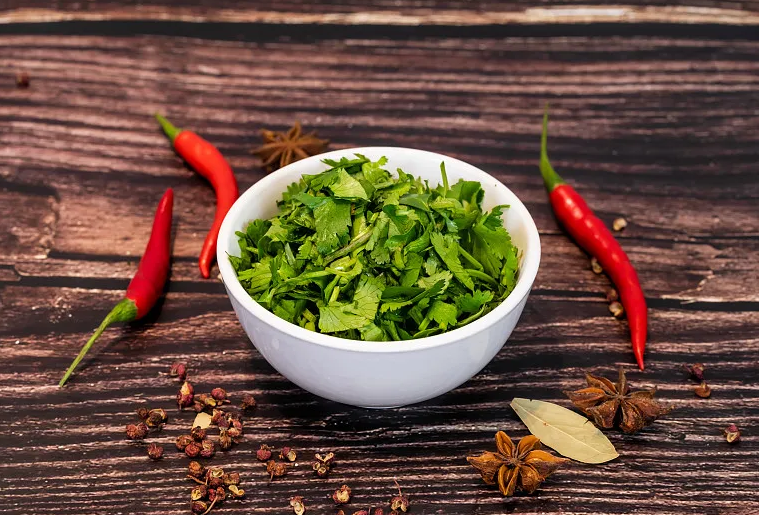
Image Source: Visual China
Sweet Flavor: Foods that tonify deficiency, strengthen the spleen, and relieve urgency.
Indications: Deficiency symptoms, muscle tension;
Examples: Tonifying deficiency: rice, wheat, glutinous rice, soybeans, black beans, carrots, tomatoes, hawthorn, longan, chestnuts, pumpkin, potatoes, etc.; relieving urgency: sugar;
Treatment for night sweats and spontaneous sweating: 100g floating wheat boiled in water for drinking.
Bitter Flavor: Foods that clear heat, descend qi, and dry dampness.
Indications: Heat symptoms, summer heat, qi counterflow;
Examples: Mung beans, bitter bamboo shoots, lotus seeds, bitter melon;
For clearing heat and relieving summer heat in summer: 20-50g mung beans boiled until soft for drinking; if there are symptoms of irritability and insomnia, add 5g lotus seeds to cook together.
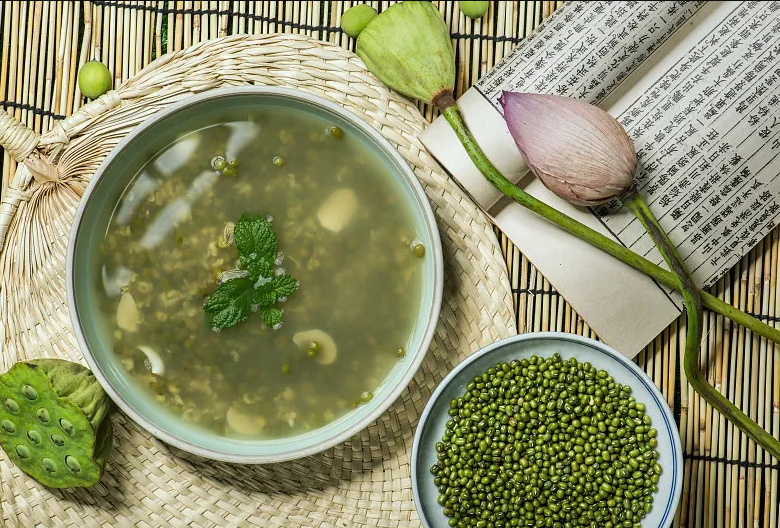
Image Source: Visual China
Sour Flavor: Foods that have astringent and consolidating properties.
Indications: Qi, blood, and body fluids are consumed and not consolidated;
Examples: Floating wheat, various fruits, cuttlefish bone, black plum, vinegar, lotus seed beard, etc.;
Eating various fruits can treat leukorrhea, diarrhea, and nocturnal emissions.
Salty Flavor: Foods that nourish essence and blood, soften hardness, and disperse masses.
Indications: Insufficient essence and blood, masses and accumulations;
Examples: Seafood, meats, etc.;
Treatment for habitual constipation: 5-10g of seaweed boiled in water + 20-30ml of sesame oil to be consumed on an empty stomach in the morning.
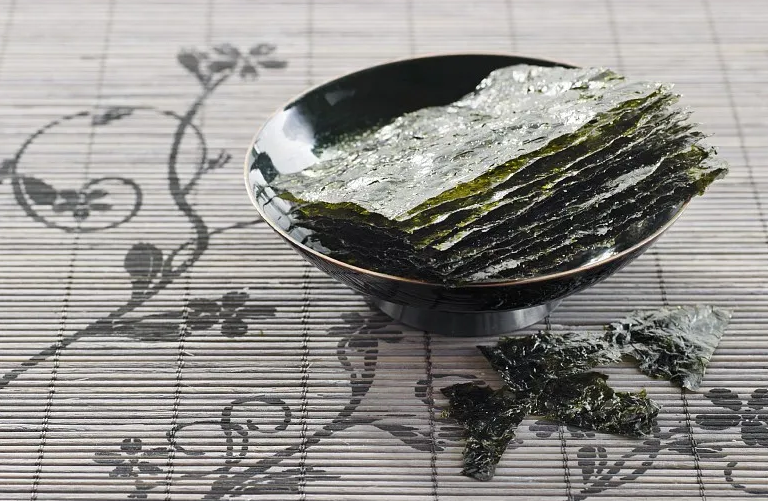
Image Source: Visual China
Bland Flavor: Foods that do not have obvious sour, sweet, bitter, spicy, or salty effects.
Indications: Spleen deficiency and water dampness;
Examples: Winter melon, yam, water chestnut, large white beans, red beans, etc.;
Treatment for edema: 50-100g red beans + 100g winter melon boiled in water for drinking.
3. Dietary Therapy Based on Yin and Yang Attributes
1. For Yang conditions (exterior symptoms, exterior heat symptoms, heat symptoms, excess conditions, excess heat syndrome), it is advisable to use Yin foods (cooling, cold, bitter, sour, salty).
2. For Yin conditions (interior symptoms, interior cold symptoms, deficiency symptoms, cold symptoms), it is advisable to use Yang foods (warming, hot, pungent, sweet).
3. Neutral and bland flavors are generally applicable.
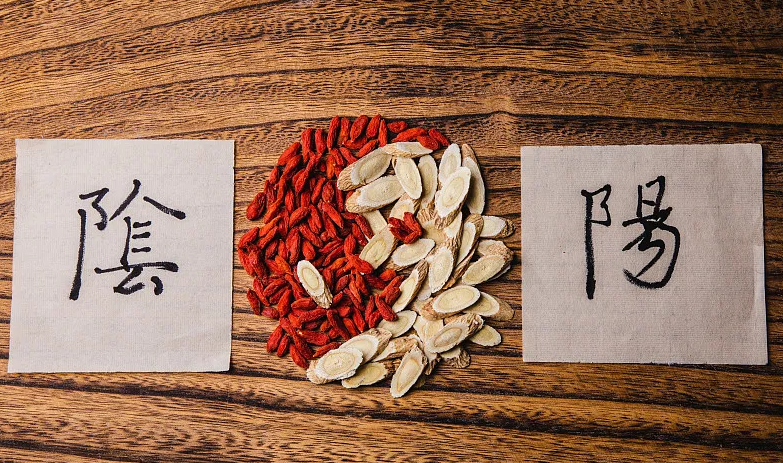
Image Source: Visual China
Using dietary therapy to treat diseases and prolong life, only by understanding how to eat and how to nourish can we achieve better health and true wellness.
